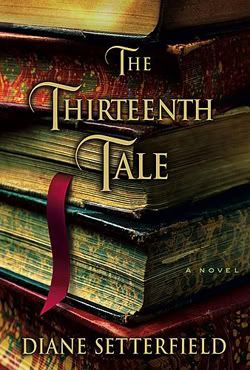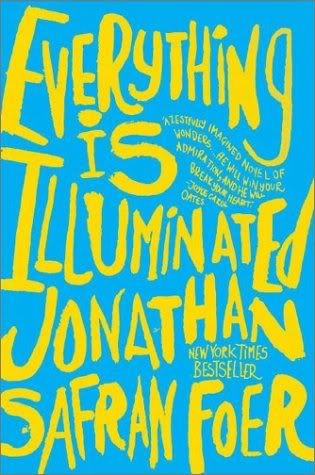You simply have to own a copy and read it.
It's been a long time since I last enjoyed a book so much. I sat down with it for 5 hours; during that time forgetting to eat, drink, answer phone calls, perform regular bodily functions and hold normal conversation. I barely looked up. If the roof had fallen in at the time, I'd have barely noticed. My only mission in life was to go to the next page, the next page, the next page, etc..
I am not even going to tell you what it's about.

Well, okaaaay I will. The story revolves around the prim and proper biographer Margaret Lea, who owns and runs a bookstore with her father. She receives a most mysterious letter from Vida Winter, allegedly the greatest living English novelist of the age (the time period of the story is never actually mentioned, but if I had to guess I'd say it was probably around the 1930s).
The aging Miss Winter wants Margaret Lea, of all people, to write and publish her biography, through many interviews and research processes at Vida Winter's home in the Yorkshire moors.
Miss Winter, being a masterclass storyteller and also, therefore, a phenomenal liar, is an exceedingly mysterious woman. Nothing is known of her birth or early life. Within a 20 year span she gives 20 very different, very wild and very imaginative accounts of her birth and life (all obviously not true). But she is prepared to divulge the entire truth to Margaret Lea, for some sinister reason.
And so begins Vida Winter's amazing tale, of her family, and her life, and her darkest secrets, while Margaret also learns to face her own painful past. The "Thirteenth Tale", so called because Vida Winter once had a book of short stories published under that title, but mysteriously the book only contained twelve stories, the pages of the thirteenth one being completely blank. I suppose you could assume that this elusive 13th tale is the chilling, disturbing and tragic narrative of Vida's own childhood. To call this book "freaky" would be both inappropriate and an understatement. It has the elements of ghosts, adultery, incest, obsession, disease, madness, the concept of twins having their souls torn apart and placed in two bodies, insanity, life after death, secrets, the fragility of family, the love of strangers, murder, arson, rape, religion. All these themes and concepts whirling about and tying each other up in knots and giving you rather unpleasant sensations of being watched (or maybe it was just me).And if you find it all too confusing or boring, even; take my word for it. This is one book you won't be putting down until you've devoured every word of every page.
Diane Setterfield is my new hero.
And one more thing; pay attention to the way Vida Winter refers to herself in the stories. The pronouns she uses; I, you, we, and so on.
That is all.




